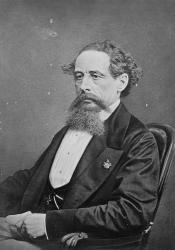Victorian Linguistics
The 1800’s is when English truly blossomed into what we consider “iconic victorian” linguistics. This type of English is much closer to modern English and as such makes it much easier to “interpret”. Reading novels from this time period is much easier than, say, Shakespeare. Another reason that it tends to be easier to read is that grammar had solidified much more at this point.
Some commonly used words during the Victorian era had more of a Latin root or polish to them. Here’s the history of some of my favorite Victorian vocabulary words, you may notice words on this list are common even today but they were even more common vernacular in the Victorian era.
Cupidity -- an inordinate desire for wealth (derived from the Latin word Cupere -- to desire)
Pecuniary -- Consisting of or measured in money (derived from the Latin word Pecuniam -- Money)
Character -- (in the Victorian sense) A person of renown and polish
These are just a few of my favorite words that I will be highlighting.
One of the authors that was best known for Victorian linguistics (aside from Austen) is Charles Dickens who lived from 1812 to 1870. When I began my research on this topic I found more about his particular linguistic style in the Victorian Era than almost any other author. I had never considered his works to be Victorian before because they are so palatable. But I suppose that’s simply because the language was more palatable than Shakespeare and other classical authors of the time.

